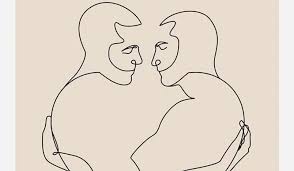Beating the Post-Holiday Blues: A Mindful Approach for Gay Men
The holiday season often brings a whirlwind of excitement—joyful gatherings, meaningful connections, and perhaps a few too many indulgences. Yet when January arrives, many find themselves feeling unexpectedly low. The shift from festive celebration to quiet routine can be jarring, giving rise to what is often called Blue Monday—the third Monday of January, widely considered the saddest day of the year.
From a psychological perspective, this “blue” feeling is understandable. The weather is cold and gray, financial pressures may surface from December’s generosity, and New Year’s resolutions can already feel like distant memories. For gay men, additional factors such as social isolation, strained family relationships, or unspoken expectations around appearance and success can deepen the emotional dip.
As a therapist, I encourage clients to approach this season with self-compassion and mindful curiosity. Through the lenses of Narrative Therapy, Cognitive Behavioral Therapy (CBT), Positive Psychology, and Mindfulness, there are many ways to rewrite the story of Blue Monday into one of growth, connection, and renewal.
1. Plan Something to Look Forward To
Narrative Therapy reminds us that life is made up of many stories—not just the one that says “I feel stuck and sad.” Planning something enjoyable, even months in advance, invites a new story of hope and anticipation. Research consistently shows that having future plans enhances happiness and motivation.
You do not need an extravagant trip. Consider a weekend getaway with a partner or close friend, or even a solo retreat to recharge. Each January, I like to encourage my clients to make it a tradition—use Blue Monday as a cue to plan your next adventure.
2. Create Connection Through Joy
Positive Psychology emphasizes that joy and gratitude are powerful antidotes to sadness. You can intentionally cultivate both by organizing a small “Blue Monday” gathering. Invite friends to wear blue, serve blue-themed drinks or snacks, and laugh about the shared experience of post-holiday fatigue.
For gay men, especially those who may not have traditional family support, chosen family plays a vital role in emotional well-being. Sharing laughter, warmth, and community helps reframe loneliness into belonging.
3. Engage Your Mind and Body with a New Hobby
From a CBT perspective, engaging in pleasurable and meaningful activities interrupts cycles of negative thinking. Hobbies stimulate the brain, reduce stress, and increase self-esteem. Learning something new—a cooking class, yoga, or even painting—can shift focus from “what is missing” to “what is growing.”
The goal is not perfection but presence. Through mindfulness, you can fully experience the process of learning, appreciating the moment rather than judging yourself by the outcome.
4. Reach Out for Support
Sometimes, what feels like a seasonal dip may actually signal something deeper—such as depression, anxiety, or Seasonal Affective Disorder. These conditions are treatable, and reaching out for help is an act of strength, not weakness.
If you notice ongoing sadness, fatigue, or disconnection, I encourage you to talk with a mental health professional. As a gay man and therapist, I understand how layered these experiences can be—balancing identity, community expectations, and personal healing. Together, we can explore practical tools to help you restore balance, rewrite the story of your year, and cultivate hope beyond the holidays.
If you would like to explore therapy with me, I welcome you to reach out. Together, we can transform this Blue Monday into the beginning of a brighter, more intentional year.




